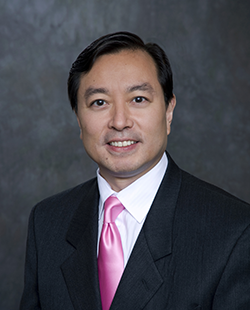
 |
|
|
Professor Bryan A. Liang, M.D., Ph.D., J.D.
|
The U.S. Food and Drug Administration recently launched a public service campaign, BeSafeRX, to alert Americans to the fact that the vast majority of the “Canadian” internet pharmacies are neither Canadian nor are they selling real medications. Although it is illegal to sell pharmaceuticals online without a prescription, not only are “no prescription necessary” on-line drug pushers still flooding the internet, they are targeting our teens through social media.
Ninety-five percent of young people are active online and 80 percent routinely access social media. In addition, U.S. Health and Human Services’ data show that in 2011 prescription drugs were the second most commonly abused drugs by children aged 12-17, surpassed only by marijuana. These two factors have created a perfect doorway through which criminals are luring our teens into addiction right in our very own homes.
Moreover, according to the National Center for Health Statistics, 43 percent of unmarried teenagers have had sex. Internet drug pushers are making that a whole lot easier. Our research has shown illicit online drug pushers are offering our children access to pills, shots, rings, patches, and even morning after pills, implants and IUDs (some advertised as over the counter). Further, they link to YouTube bringing up multiple “do-it yourself” videos showing how to insert an IUD, including a cartoon version. As medical professionals, we can attest that patients who merely manipulate their IUDs run a great risk of perforating their uteruses. This is a significant emergency requiring immediate medical attention. We shudder to think of the teen who purchases the “over the counter” IUD, loads up the cartoon YouTube video, and inserts the sharp, non-sterile piece of metal, thereby causing irreparable physical damage, and doing this without any oversight―not medical, and not their parents'.
Teens accessing medication outside of our sphere of attention is bad enough, but counterfeit drugs from online sources pose significant health threats as well. At IHLS, our research has shown these may contain no medication, too little medication, or too much, resulting in accidental overdoses, unplanned pregnancies or strokes, and other adverse unintended effects. Worse yet, they may be made of something toxic; for example, Borax (roach killer that causes renal failure) mixed with poisonous yellow road paint, floor wax, heavy metals, or other lethal substances.
Parents and teens need to ensure that they are well versed on the practical concerns regarding the internet and sexual health. For example, key issues should be reviewed with medical professionals and include heart-to-heart discussions with kids: that the oral contraceptives, implants, rings, and IUDs do not protect against venereal diseases and HIV/AIDS; the effective use of contraception is complicated, and potential side effects are significant; and that there are negative clinical effects induced by teen medical concerns (e.g., smoking; diabetes) and contraception types used.
What can we do?
Learn about the dangers of online purchasing and counterfeit medications. The Food and Drug Administration’s BeSafeRX website is a good place to start, as well as the Partnership for Safe Medicines, and the National Association of Boards of Pharmacy, all of which provide information on purchasing medications safely online from accredited sources.
In addition, make it a point to talk to your children about the dangers they are putting themselves in if they buy and abuse prescription drugs or get their prescription birth control from suspect sources online.
Keep an eye on your child’s credit card bill and Paypal accounts for merchants you don’t recognize. Online drug pushers will sometimes disguise their charges as something innocuous, so if your child starts suddenly receiving packages, don’t accept the excuse that they contain video games or DVDs. Check the packages.
Talk to both your sons and daughters about the risks associated with sexual activity, and make sure that young women get birth control only through a licensed medical professional and a reputable pharmacy.
Finally, urge lawmakers to shut this doorway into your home for criminals, allowing only NABP certified pharmacies to sell medicines online. But we are last barrier to harm. Until they close that doorway, guard the portal as if your kid’s life depends on it. It does.
Mackey is Senior Research Associate and Liang is Executive Director of the Institute of Health Law Studies at California Western School of Law. Their research on internet drug safety has appeared in dozens of academic and policy journals. Their work on internet patient safety has been featured by news outlets including USA Today, the Wall Street Journal, the Washington Post, ABC World News, CBS Evening News, Fox News, as NPR, and CNN Money.
// RES IPSA ONLINE